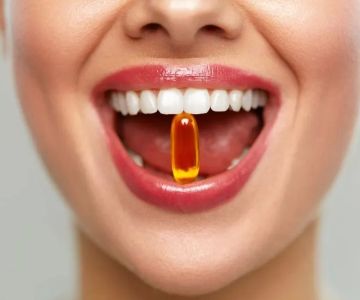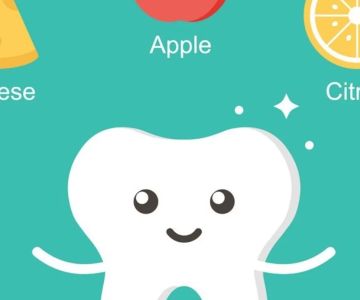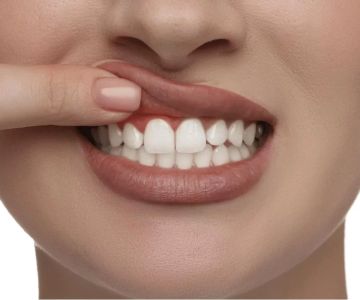Does Diet Have Any Special Effect on Your Oral Health?
It's no secret that what you eat plays a significant role in your overall health, but did you know that your diet can also have a profound effect on your oral health? As someone who is passionate about maintaining healthy teeth and gums, I’ve learned that the right foods can not only keep your smile sparkling but also protect against common dental issues like cavities, gum disease, and bad breath. The impact of diet on oral health is often overlooked, but understanding this relationship is crucial for achieving long-term dental wellness. In this article, I’ll explore how different food choices affect oral health, and provide tips on how to make better dietary decisions for healthier teeth and gums.
1. The Connection Between Diet and Oral Health
Your mouth is a gateway to your entire body, and what you eat influences more than just your weight and energy levels. Certain foods can promote a healthy mouth, while others can accelerate the development of dental issues. For instance, foods high in sugars and acids can contribute to tooth decay and enamel erosion, while nutrient-rich foods can strengthen your teeth and gums. Many people underestimate the impact of their daily food choices on their oral health, but the truth is that good oral hygiene combined with a balanced diet is essential for maintaining a healthy smile.
2. Sugars and Cavities: The Primary Culprits
One of the most significant ways diet affects oral health is through the consumption of sugar. Sugars, especially refined sugars found in sweets and sodas, are the primary fuel source for harmful bacteria in the mouth. When you consume sugary foods, the bacteria in your mouth feed on these sugars and produce acid as a byproduct. This acid then attacks the enamel of your teeth, leading to cavities over time. The more frequently you eat sugary foods and drinks, the more opportunities you give these bacteria to thrive and cause damage.
To protect your teeth, it’s important to limit sugar intake and consume sugary foods in moderation. If you do indulge in a sweet treat, try to do so during mealtime, as eating sugar on its own can expose your teeth to acid for longer periods. Pairing sugar with other foods, like proteins or healthy fats, can help minimize its impact on your teeth.
3. Acidic Foods and Their Effect on Tooth Enamel
Acidic foods and beverages can also have a damaging effect on your oral health. Drinks like soda, citrus fruits, and wine are highly acidic and can erode tooth enamel over time. Enamel is the protective outer layer of your teeth, and once it’s gone, it doesn’t grow back. The more acidic foods and drinks you consume, the more you wear down your enamel, making your teeth more susceptible to decay and sensitivity.
To reduce the damage from acidic foods, try to rinse your mouth with water after eating or drinking acidic items. You can also use a straw when drinking acidic beverages to minimize direct contact with your teeth. Additionally, waiting at least 30 minutes after eating before brushing your teeth can help avoid further enamel erosion, as your enamel is softened after exposure to acid.
4. The Role of Calcium and Vitamin D in Oral Health
While sugary and acidic foods can harm your teeth, certain nutrients play a vital role in supporting strong and healthy teeth. Calcium, for example, is essential for the strength of your tooth enamel. Foods rich in calcium, such as dairy products, leafy green vegetables, and fortified plant-based milk, help strengthen your teeth and bones. Along with calcium, vitamin D is crucial for ensuring that your body can absorb calcium properly. Vitamin D can be found in fatty fish, egg yolks, and fortified foods like cereals and orange juice.
Incorporating calcium and vitamin D-rich foods into your diet can help prevent tooth decay and support bone health, reducing the risk of gum disease and other dental issues. It’s essential to make these nutrients a regular part of your diet to maintain optimal oral health throughout your life.
5. How Fiber-Rich Foods Benefit Your Gums and Teeth
Fiber is another key nutrient that promotes oral health. Fiber-rich foods, such as fruits, vegetables, and whole grains, can help stimulate saliva production, which is your mouth's natural defense against tooth decay. Saliva helps neutralize acids in the mouth, wash away food particles, and reduce the number of harmful bacteria. Fiber also helps to scrub your teeth as you chew, acting as a natural toothbrush and reducing the buildup of plaque.
Incorporating more fiber into your diet not only supports healthy teeth but also promotes healthy gums. Foods like apples, carrots, and celery are great choices for boosting your fiber intake while simultaneously cleaning your teeth. The crunchiness of these foods helps massage your gums, improving blood circulation and supporting gum health.
6. The Benefits of Drinking Water for Oral Health
Water is essential for overall health, but it’s particularly beneficial for your oral health. Drinking water throughout the day helps rinse away food particles, neutralize acids, and maintain a healthy pH balance in your mouth. It also prevents dry mouth, which can lead to an increased risk of cavities and gum disease. Water is the best beverage for your teeth, as it doesn’t contain sugars or acids that could cause damage.
In addition to drinking water, you can also use it as a natural mouth rinse after meals, especially when you don’t have access to a toothbrush. Keeping your mouth hydrated with water is one of the easiest and most effective ways to protect your oral health.
7. The Importance of a Balanced Diet for Long-Term Oral Health
In conclusion, the foods you eat can significantly affect your oral health, both positively and negatively. A balanced diet rich in vitamins, minerals, and fiber supports strong teeth and healthy gums, while sugary, acidic, and processed foods can lead to tooth decay and other dental issues. By making mindful food choices, you can take control of your oral health and enjoy a lifetime of healthy smiles.
Remember that oral hygiene, such as brushing and flossing, is equally important in maintaining oral health. When combined with a healthy diet, good oral hygiene can keep your teeth and gums in great condition for years to come. If you’re unsure about how to improve your diet for better oral health, consult with a dentist or nutritionist for personalized recommendations.
OLD Keywords-8:SEO Title: Does Diet Have Any Special Effect on Your Oral Health?SEO Keywords: diet and oral health, foods for healthy teeth, oral hygiene and diet, preventing cavities with diet, foods that promote oral health, oral health diet tipsSEO Description: Learn how diet affects your oral health, including the role of sugars, acids, and nutrients like calcium and fiber in preventing tooth decay and promoting healthy gums.






 Great Expressions Dental Centers - New City4.0 (362 review)
Great Expressions Dental Centers - New City4.0 (362 review) MapleTree Pediatric Dentistry4.0 (102 review)
MapleTree Pediatric Dentistry4.0 (102 review) Smile For All Family Dental0.0 (0 review)
Smile For All Family Dental0.0 (0 review) Tender Care Family Dentistry4.0 (61 review)
Tender Care Family Dentistry4.0 (61 review) Coventry Family Dental4.0 (247 review)
Coventry Family Dental4.0 (247 review) Rush Family Dental5.0 (161 review)
Rush Family Dental5.0 (161 review) The Importance of Oral Health Education During Pregnancy for a Healthy Pregnancy
The Importance of Oral Health Education During Pregnancy for a Healthy Pregnancy Best Tips for Brushing Your Teeth Properly for Healthy Gums: Essential Techniques for Oral Health
Best Tips for Brushing Your Teeth Properly for Healthy Gums: Essential Techniques for Oral Health Why Skipping Dental Checkups Can Lead to Bigger Oral Health Problems
Why Skipping Dental Checkups Can Lead to Bigger Oral Health Problems Advantages of Porcelain Dental Restorations
Advantages of Porcelain Dental Restorations How Can Diabetes Cause Tooth and Gum Problems? Preventing and Managing Oral Health Issues
How Can Diabetes Cause Tooth and Gum Problems? Preventing and Managing Oral Health Issues Healthy Habits for Promoting Good Oral Health and Hygiene: Tips for a Healthy Smile
Healthy Habits for Promoting Good Oral Health and Hygiene: Tips for a Healthy Smile